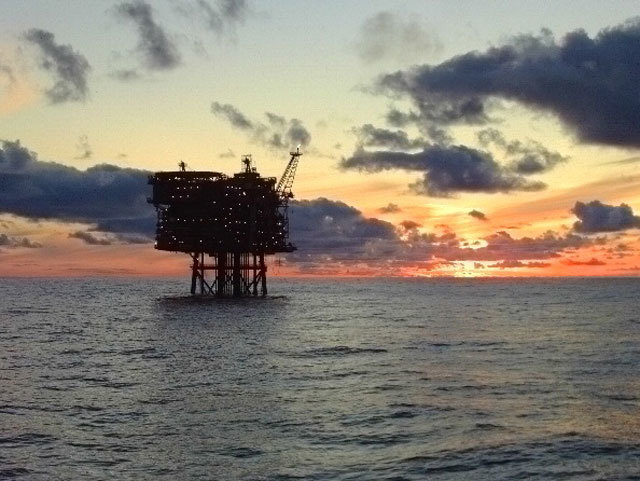
Hungarian oil firm Mol Group celebrated its arrival as the first major new player in the North Sea in the last year at an event in Aberdeen yesterday.
Hungary’s largest company unveiled ambitious plans to double its daily oil and gas production worldwide and pledged to spend a share of up to £900million on assets it acquired from Wintershall in a £220million deal that completed in March.
Alexander Dodds, the firm’s executive vice president of group exploration and production, also confirmed he was eyeing North Sea assets for the company’s next acquisition spree.
The company has £3.6billion in “available liquidity”, according to company report.
The Wintershall assets are currently non-operated, including stakes in 14 licences in the Broom field, along with the Catcher, Cladhan, Scolty and Crathes. It also now owns a share in the Sullom Voe terminal on Shetland and the Brent pipeline system.
Mr Dodds said: “Some of the opportunities for acquisition we are looking at right now are not only assets but companies, too
“We’ve got enough financial headroom in the company to make significant acquisitions.”
The firm has also entered the 28th North Sea licensing round.
Mr Dodds, who was born in Dumfriesshire, joined the Budapest-based company from his role as an executive VP at TNK-BP in Moscow. He spent his early years in the North Sea in Aberdeen working for Mobil.
He was living in Aberdeen the day of the Piper Alpha disaster which he said left an “indelible print” on him which shapes his approach to exploration and production today.
“It was a big shock to the industry. It was a big shock to me,” he recalled.
“Piper Alpha was disaster that could have been avoided, but wasn’t. Texas City is another one. Macondo is another one.
“All of these things are avoidable if enough focus and attention is given to hazard identification, ensuring safe work practices, ensuring there is an accurate and transparent way to deal with safety upsets.
“The safety culture didn’t exist before Piper Alpha, but it does now. “The principle I am bringing to Mol is the same principle that is being openly embraced by Mol.”
The company’s offices on Aberdeen’s Riverside drive is set to become Mol’s headquarters for its operations in Western Europe.
It currently employs eight people, including former venture production co-founder Christopher Bird. The firm is currently recruiting four further roles “immediately”.
Mol Group is listed on the Budpest Stock Exchange with a market capitalisation of around £3.7billion. The Hungarian state has a 23% stake in the firm.
Recommended for you

